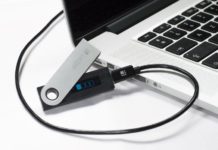[ad_1]
Virtual “mining” is one of the most interesting things about the crypto space. The idea that one can use their computer to earn a passive income in cryptocurrency has drawn a flood of entrepreneurs over the last few years, similar to the gold rush of the 19th century. This article will focus on mining Litecoin, one of the most famous cryptopcurrencies.
What exactly is mining? In broad terms, it’s how blockchain networks and cryptocurrencies can be decentralized. Meaning not under the control or operation of a single company. Every transaction that occurs on a network needs to be verified and confirmed. Once this is done, a “block” is added to the network for that transaction, forming (hence the name) a chain of blocks.
Verification comes from “miners”. Computers running a specialized function to solve a system of algorithms to complete the block. Many miners compete to solve the algorithm first. The one that does is rewarded with coins from that network (Bitcoin, for example).
Bitcoin mining has long been the most popular, as the coin itself has the highest value. But, that means competition is also the highest and thus the hardest to get decent returns. For that reason, less competitive coins, such as Litecoin, may actually bring a better return on investment, due to more consistent rewards.
This guide is going to tell you what it takes to start mining Litecoin in 2018.
What is Litecoin?
Let’s start with a brief explanation of what Litecoin actually is.
There is a common phrase used to describe Litecoin. If Bitcoin equal to gold, then Litecoin is silver. Litecoin was created as a fork from the Bitcoin code, by former Google engineer Charlie Lee. Working in a very similar way to Bitcoin, Litecoin is designed to process transactions faster, making it a better option as an everyday payment method.
Litecoin was first released in 2011. Since then, it has been one of the highest valued altcoins and was Bitcoin’s biggest competitor before Ethereum’s release. While Litecoin’s valuation has fallen slightly compared to other large-cap coins, it remains one of the best transactional currencies. Litecoin is currently accepted by over 200 online and brick-and-mortar businesses.
What to Consider Before You Start Mining
Crypto mining isn’t quite as easy as grabbing a pickaxe and starting to dig. There are several prerequisites you need to think about before you start, and honestly not everyone will be in a position to mine crypto.
Mining in 2018 requires a significant investment. In the early days, one could mine on any decent computer. But due to the nature of mining, and how users are competing with each other to earn the block reward, devices used for mining have become incredible high-powered. Anyone trying to mine on a regular computer will get beaten to the punch every time.
So to have any realistic chance of getting any block rewards, you need a custom-made mining computer, and the ability to pay the power costs of running said machine. Because of electricity costs relative to crypto prices, mining is not always feasible in some parts of the world, since you are not likely to earn enough return to cover your power bill alone.
You will need to take into account how much daily return you are likely to make after your power costs. Also, think about the time it will take to recoup the money spent on mining hardware. You may make $2 per day profit, but if you spent $1000 on a mining computer, it will still take more than two and a half years just to break even. That is, assuming the price of Litecoin doesn’t change. It could rise, and your mining could become profitable more easily, but it could also fall and put you at a loss.
There are several alternatives for those that want to get a piece of the mining pie, but can’t afford to operate a setup themselves. We’ll get to that a little later, but first, here’s how to mine Litecoin by yourself.
How to Mine Litecoin
The first thing you’ll need is a crypto wallet capable of holding Litecoin. For mining, the best option would be the Litecoin core wallet, designed and supported by the Litecoin devs.
Next, you’ll need a machine. You can put together a mining setup, or “rig”, yourself, or you can buy a specially-made crypto miner. Chinese-based company Bitmain is one of the world’s largest suppliers of mining equipment, and sell a range of mining computers through their website. Made for crypto mining, Bitman’s Antminer machines generally offer the most efficient combination of computing power versus energy consumption, to give the best ROI.

If you have some know-how, you can make one yourself. The main components you’ll need are:
- One or more high-level graphics processing units (GPUs)
- A cooling unit or fan setup (miners are at risk of overheating with the energy they use)
- Some kind of Scrypt mining software
Generally, rigs will be set up with a number of connected GPUs, so as to get the most power and the highest chance of winning the block reward. This means you will likely need a decent amount of space dedicated to the machine.
You’ll need to ensure you have consistent access to power and internet connections, to be able to run your mining operation 24/7. Also, unless you’re planning to hold for the long-term, sign up for a crypto exchange so you can move the coins you mine. An exchange like Binance allows you to trade your Litecoin for Bitcoin, Ethereum or a wide range of smaller coins, while Coinbase allows you to withdraw your coins for Fiat currencies (USD or EUR).
Finally, running a mining operation over the long term is not quite as passive as you may think. It’s important to stay up to date with any development in the mining industry. Crypto, and crypto mining is still very young, so changes are constantly happening. Miners have to evolve with the changes. New technology can come on the market which makes older machines outdated, for example. This could also include updates to the Litecoin network, which may impact its mining algorithm.
Alternatives to Mining Litecoin Solo
If crypto mining sounds a bit daunting, that’s because it is. No longer can you set up a small mining operation in your home office, and compete with commercial mining farms. Luckily there are some alternatives for those who don’t have the means to set up a commercial-level operation.
One option is to join a mining pool. This is where many people put their computing power together to help solve the block transaction and earn block rewards. With the rewards split between each party, returns are lower, but it allows access to mining with a much lower investment.
Another option is to buy shares in a mining operation. This allows companies operating mining rigs, or larger-scale mining farms to build bigger and more competitive setups, bringing in a higher return. While those who can’t afford or don’t want to mine by themselves can invest and earn a passive income.
There are many reputable companies that run mining pools or take investments in mining operations, but there are also a lot of scams. If you’re considering investing in either of these methods, be sure to do thorough research and vetting so you don’t end up falling victim to an illegitimate operation.
Mining Litecoin: In Summary
In 2018, Bitcoin mining is no longer feasible at anything less than a full-scale commercial level. And while Litecoin mining is beginning to head the same way, it is much more realistic for someone running a solo mining operation.
Depending on where the Litecoin price goes in the near future, a mining investment in a bear market like 2018’s could pay significant dividends, should the next bull run arrive.
If you want to start mining Litecoin now and have the means to do so while maintaining a profit, the best advice would be to invest in one of Bitmain’s Antminer machines. Just stay in touch with the market, so new advancements in mining don’t have you left behind.
Interested in learning more about price and profitability of mining Litecoin? You can read our full (and consistently updated) Litecoin price prediction here.
[ad_2]
Source link



